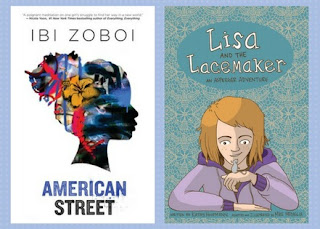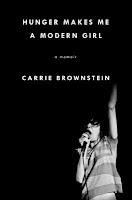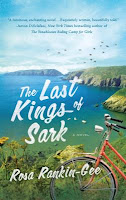Bullet Review: The Painted Queen by Elizabeth Peters and Joan Hess
 As
many of you know, I am a huge fan of Elizabeth Peters's Peabody-Emerson
novels. I started reading the 20-book series before I began this blog,
but I believe I've reviewed at least half of the books here.
As
many of you know, I am a huge fan of Elizabeth Peters's Peabody-Emerson
novels. I started reading the 20-book series before I began this blog,
but I believe I've reviewed at least half of the books here.
Peters died in 2013, leaving behind the unfinished manuscript for The Painted Queen. Joan Hess had the honor of using the manuscript and Peters's copious notes to complete this Peabody-Emerson adventure.
So,
as I wrote yesterday, I picked up this novel with mixed feelings: very
happy to get one last visit with Amelia Peabody but very sad to know it
truly was time to say good-bye.
Background on the series:
In case you are unfamiliar with the series, the Amelia
Peabody-Radcliffe Emerson books take place primarily in Egypt in the
early decades of the last century. Emerson is, according to his wife,
the best archaeologist in the world. The books each cover a single digging
season. Although Peters's scientific, cultural, and historical
details are spot-on, the stories are less about Emerson's
discoveries and more about murder, theft, and mayhem. We also meet the
couple's friends, family, and crew, all of whom become dear to us
readers. Throughout the series, we also get to know Peabody and
Emerson's arch-enemy, the master criminal Sethos. No summary is
complete without mentioning Peters's wonderful sense of humor, which
she used to give her characters spark and personality.
Chronology of The Painted Queen:
Peters initially wrote the bulk of the Peabody-Emerson novels in
chronological order, intending from the beginning to stop the series
with the discovery of King Tut's tomb. However, she wrote at least three
installments that bridged gaps in the general story arcs, and The Painted Queen was meant to come after book 13 (The Falcon at the Portal).
What I liked about The Painted Queen:
Besides the obvious joy at reading another Peabody-Emerson story, I was
glad to have a little more information about the second-generation of
characters: Ramses (the couple's son), Nefret (their ward), and David (a
relative of one their staff), and this book helped provide some missing
bits. I was also relieved that the familiar attempted murder, thefts,
and forgeries propelled the plot, and I had a least one surprise. The
personalities of the characters were true to form, and Amelia's trusty
parasol (read: weapon) was put to good use. Long-time fans of Peters
will enjoy the nods to the other books in the series, and it was fun to
recognize the titles in the running dialogue.
What I didn't like about The Painted Queen:
It took me a while to get into this installment because I could tell it
wasn't pure Peters. But after a few chapters, I relaxed and let myself
be carried off to Egypt, seeing the world through Amelia's eyes. I
noticed some repetition of information, a little bit of strain with some
of the familiar motifs, and a lot more telling than showing. I also
missed the cats, which were always part of the Emerson household.
Despite what I wrote in the last paragraph, the details about the next
generation were pretty skimpy, and I can't help but wonder what Peters
had in mind for the book's role in furthering the series in general. The
tensions and friendships among the three younger characters were not as
intense as readers have come to expect. Finally, a couple of threads
were left unresolved, which I presume would have been followed up in
further books, if Peters had lived.
Overall recommendation and thoughts: Even though The Painted Queen
had a few weaknesses, I think Joan Hess did an admirable job of
completing Elizabeth Peters's manuscript. I can't imagine it's an easy
thing to write in someone else's voice, and the job was made all the
harder because of Peters's avid fans and because the novel had to fit
into an already determined story line. If you've read or are reading the
Peabody-Emerson books, you will not want to miss The Painted Queen.
I suggest, however, you accept the novel for what it is. I'm grateful
for this last Egyptian adventure, and I appreciate the work Hess
did to create the story Peters wanted to share with her readers.
The audiobook:
Thank goodness the unabridged audiobook (Harper Audio; 13 hr, 18 min)
was read by Barbara Rosenblat; I don't think I could have stood hearing
another voice as Amelia, Emerson, and the gang. Although I think her
performances were stronger when they were paired with Elizabeth Peters
as a solo writer, Rosenblat's familiar characterizations, sense of
timing, accents, and pronunciation of the Arabic words were comforting
and helped me connect to the story. Rosenblat is the narrator for
this series, and her work as a whole on these books is outstanding.
(Thanks to Harper Audio for the review copy.)



































